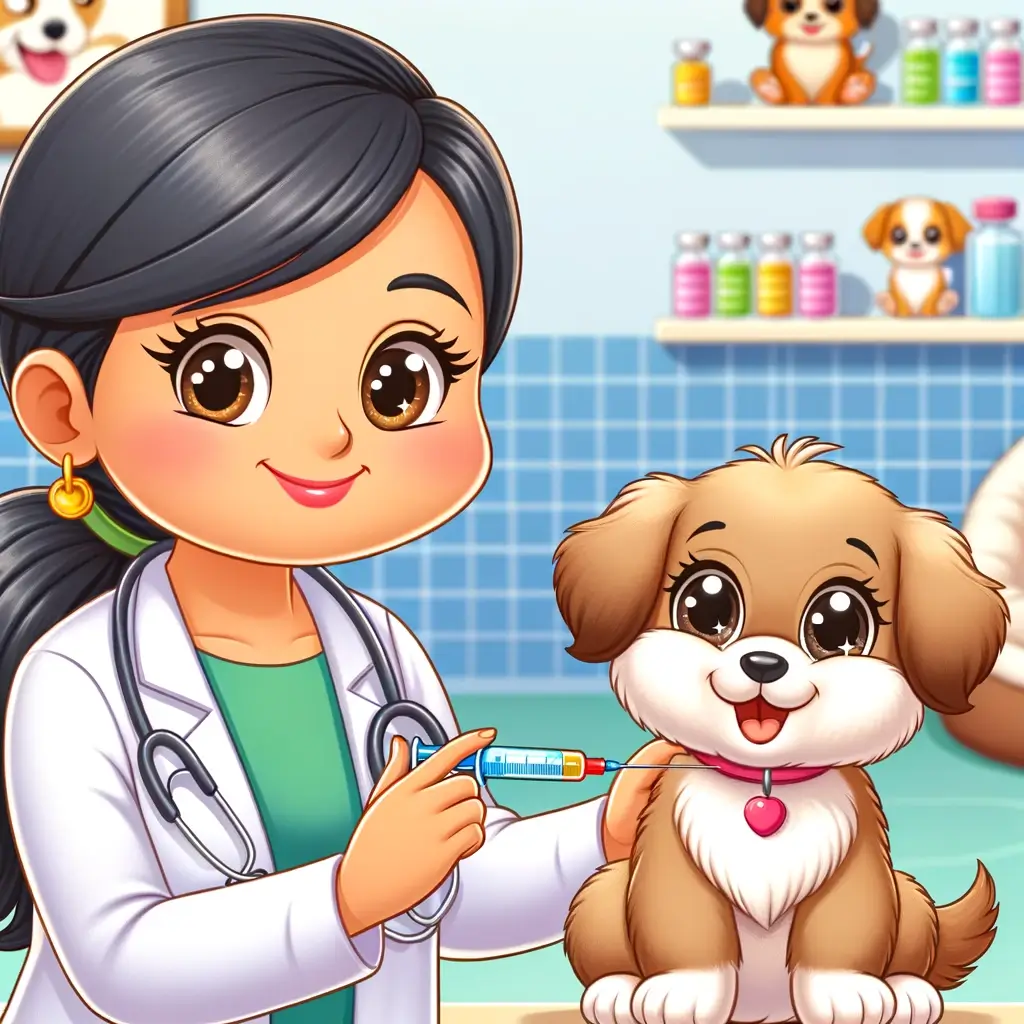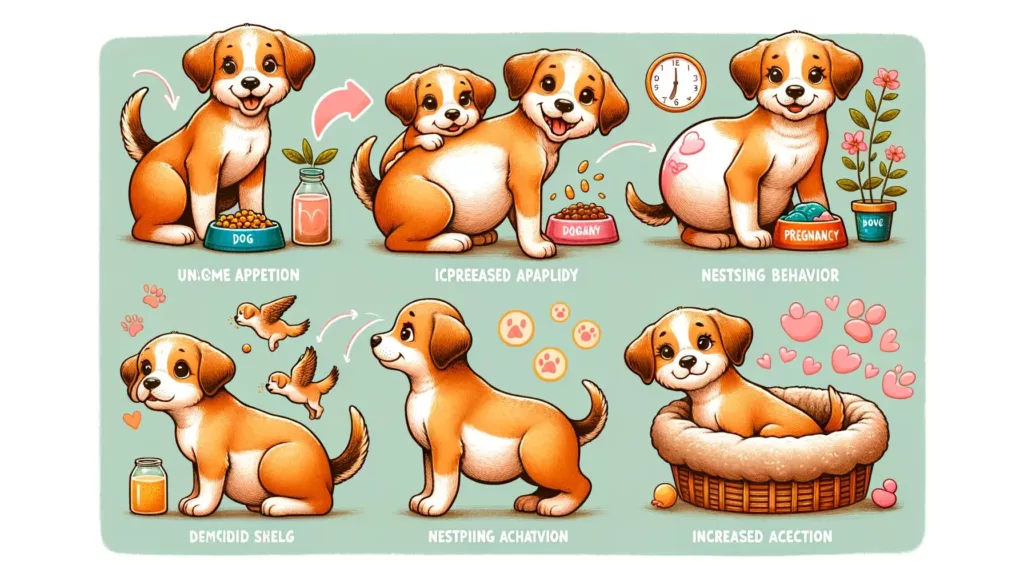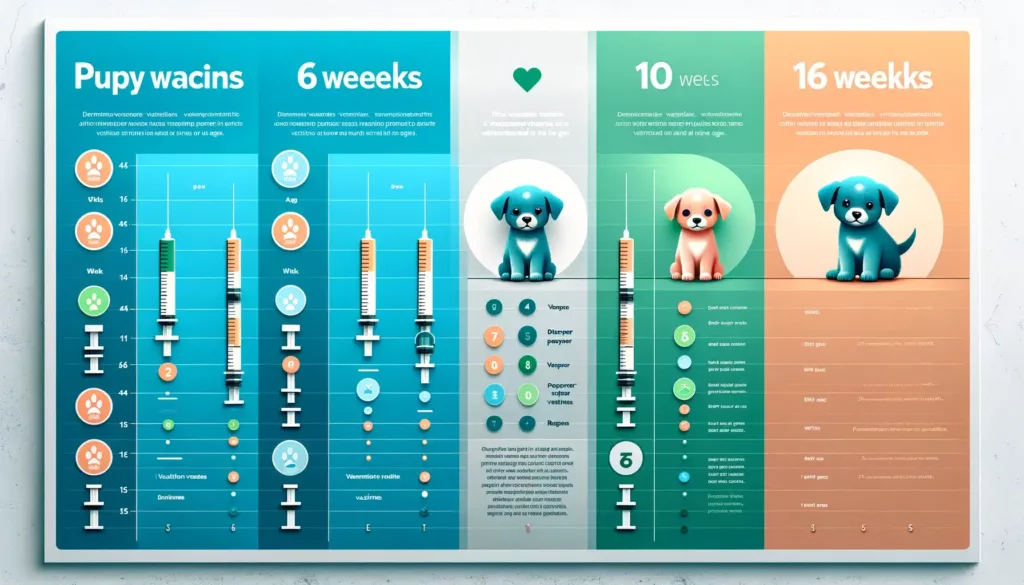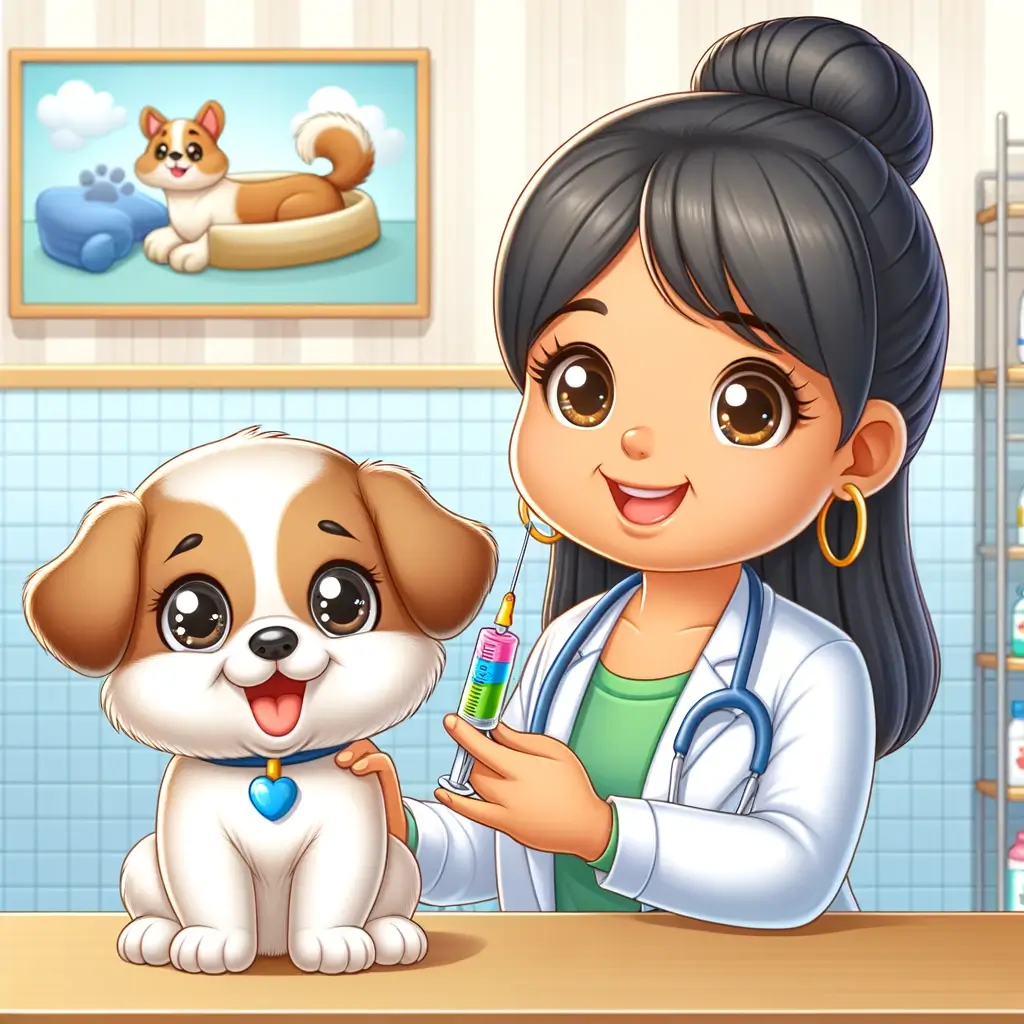So, When do puppies get 1st shots?
Puppyhood is a time of immense joy and responsibility. The wagging tail and innocent eyes of a new furry family member bring unparalleled happiness. However, this joy comes with a duty – ensuring their health and wellbeing. A crucial aspect of this duty involves understanding and managing your puppy’s vaccination schedule and, if you are caring for a pregnant dog, ensuring proper prenatal care. This guide dives into the world of puppy vaccinations and maternal canine care, two pivotal components of pet health and animal welfare.
The Essentials of Puppy Vaccinations
Ensuring your puppy’s health begins with understanding the essentials of canine immunization. Puppy vaccinations play a critical role in safeguarding your pet against various diseases, setting the foundation for a healthy life.
What Are Puppy Vaccinations?

Puppy vaccinations are more than just routine shots. They are a vital part of veterinary medicine that protects your pet from serious, often life-threatening, canine diseases. Vaccines help develop immunity by imitating infections, allowing your puppy’s immune system to build defenses against actual diseases safely.
When Do Puppies Get Their First Shots?
The first shots are pivotal in your puppy’s life. Typically, puppies receive their initial vaccinations between six to eight weeks of age. This timing is crucial as the natural immunity from the mother’s milk starts to wane around this age. A series of shots, usually spaced three to four weeks apart, will follow until the puppy is about 16 weeks old. The puppy shots schedule is not one-size-fits-all; your veterinarian may suggest modifications based on your puppy’s health, breed, and lifestyle.
Key Vaccines for Your Puppy
Your puppy’s first year is filled with a series of vaccinations. Core vaccines, universally recommended regardless of where your puppy lives, include canine parvovirus, distemper, canine hepatitis, and rabies. Non-core vaccinations, such as Bordetella and leptospirosis, are administered based on your puppy’s exposure risk. These preventive measures play a monumental role in ensuring your puppy’s long-term health.
Navigating Puppy Health and Vaccination Care
Post-vaccination care is as important as the immunization itself. Understanding how to care for your puppy before and after shots can make a significant difference in their wellbeing.
Preparing Your Puppy for Vaccinations
Preparation for vaccinations begins with a healthy lifestyle. Ensure your puppy has a balanced diet, regular exercise, and a stress-free environment. A healthy body can respond better to vaccines and build stronger immunity. On the day of vaccination, keep your puppy calm and comfortable. It’s normal for puppies to feel a bit anxious about a vet visit, so a reassuring presence can make all the difference.
Understanding Side Effects and Post-Vaccine Care
Most puppies handle vaccines very well, but some may experience mild side effects such as soreness at the injection site, slight fever, or lethargy. These symptoms usually resolve within a day or two. However, if you notice more severe reactions, such as persistent vomiting, diarrhea, or difficulty breathing, contact your veterinarian immediately. Post-vaccine, give your puppy a quiet place to rest and ensure they have access to fresh water. Monitoring their behavior and appetite post-vaccination is a key part of responsible dog care.
In conclusion, the journey through puppy vaccinations is a blend of veterinary expertise, preventive care, and attentive pet parenting. Ensuring your puppy’s health through timely vaccinations and appropriate care sets the stage for a happy, healthy life together.
Dog Pregnancy and Prenatal Care

Understanding the nuances of dog pregnancy is essential for any pet owner. Just like human pregnancies, dog pregnancies require special care and attention to ensure the health and well-being of both the mother and her puppies.
Recognizing Signs of Dog Pregnancy
| Sign of Pregnancy | Description |
|---|---|
| Behavioral Changes | Increased affection or, conversely, aloofness |
| Appetite Increase | Notable increase in food consumption |
| Physical Changes | Swollen belly and increased weight |
| Nipple Growth | Enlargement and darkening of nipples |
| Decreased Activity | Less energy and more time spent resting |

Observing these signs early can help in planning and preparing for the upcoming birth. Regular veterinary check-ups are vital for monitoring the health of the mother and the developing puppies.
Veterinary Medicine and Prenatal Check-ups
| Prenatal Check-up Stage | Focus |
|---|---|
| Initial Confirmation | Ultrasound or blood test to confirm pregnancy |
| Mid-term | Regular check-ups for weight and health monitoring |
| Pre-whelping | Final check-ups to ensure readiness for birth |
Your veterinarian plays a critical role in the prenatal care of your pregnant dog. They provide essential advice on nutrition, supplements, and exercise, ensuring the mother maintains optimal health throughout her pregnancy.
Ensuring comprehensive care during your dog’s pregnancy is critical for the well-being of both the mother and her puppies. It’s a time that demands increased attention to diet, comfort, and veterinary care. Regular check-ups, a balanced diet, and a calm environment can significantly contribute to a healthy pregnancy and the delivery of healthy puppies.
Delivering Healthy Puppies
The process of preparing for and supporting a dog through labor, known as whelping, is a critical phase in the life of a pregnant dog. Proper preparation and understanding can make this process smoother for both the pet owner and the dog.
Nurturing a Pregnant Dog
Ensuring a pregnant dog is well-cared for involves several key aspects:
| Aspect of Care | Details |
|---|---|
| Nutrition | High-quality, nutrient-rich diet tailored for pregnancy |
| Exercise | Gentle exercise to maintain fitness without overexertion |
| Comfort | A quiet, comfortable area for rest and relaxation |
| Veterinary Visits | Regular check-ups to monitor health and progress |
By addressing these areas, you help create an optimal environment for a healthy pregnancy and eventual labor.
Preparing for Whelping (Dog Labor)

As the due date approaches, it’s important to be prepared for the labor and delivery process:
| Preparation Step | Description |
|---|---|
| Whelping Box | Prepare a comfortable, secluded space for birth |
| Emergency Plan | Know the contact information of your vet and emergency services |
| Birth Supplies | Gather necessary supplies like clean towels, scissors, and antiseptic |
| Monitoring | Understand signs of labor onset and how to monitor the progress |
Being well-prepared can significantly ease the whelping process and ensure a safe and comfortable birth for the mother and her puppies.
Postnatal Puppy Care and Mother’s Health
After the excitement and challenges of labor and delivery, the focus shifts
to postnatal care for the newborn puppies and the mother’s health.
Caring for Newborn Puppies

Newborn puppies require delicate care in their first few weeks of life:
| Care Aspect | Details |
|---|---|
| Feeding | Ensure puppies are nursing well and regularly |
| Warmth | Maintain a warm and comfortable environment |
| Health Monitoring | Watch for signs of illness or distress |
| Vet Check-ups | First veterinary visit for a health check and deworming |
Monitoring the puppies closely during these initial weeks is essential for their development and health.
Ensuring Ongoing Health and Wellness
The health and wellness of both the mother and her puppies continue to be a priority:
| Focus Area | Details |
|---|---|
| Mother’s Recovery | Monitor the mother’s health post-delivery for any complications |
| Nutrition | Balanced diet for the mother, especially if nursing |
| Puppy Development | Monitor puppies’ growth and development milestones |
| Vaccinations | Plan for the puppies’ first vaccinations and health checks |
Proper care during this phase is crucial for the long-term health and well-being of the mother and her puppies.
The Journey to Puppy Vaccinations
As the puppies grow, their need for vaccinations becomes crucial for their development into healthy and well-protected dogs. This marks the next significant phase in their journey after their initial weeks of life.
Transitioning to Puppyhood
As puppies transition from reliance on their mother’s immunity to developing their own, vaccinations become key:
| Puppy Age | Vaccination Need |
|---|---|
| 6-8 Weeks | Start of puppy vaccination series |
| 10-12 Weeks | Follow-up vaccinations |
| 16 Weeks | Final round of initial vaccinations |

These vaccinations are essential for protecting the puppies against common canine diseases and preparing them for a healthy life.
Integrating Into Family Life
As the puppies grow and get vaccinated, they become more ready to integrate fully into family life and the wider world:
| Milestone | Details |
|---|---|
| Socialization | Introduce puppies to different people, animals, and environments |
| Training | Begin basic training for commands and house manners |
| Routine Vet Visits | Establish regular check-ups for continued health monitoring |
This period is crucial for their social and behavioral development, setting the stage for their adult lives.
Conclusion: A Comprehensive Approach to Puppy Care
From the moment of pregnancy through to the puppies’ growth into young dogs, a comprehensive and caring approach is essential. This journey encompasses prenatal care, whelping preparation, postnatal care, and the important phase of vaccinations and socialization. Each stage requires attention, love, and a commitment to health and wellbeing, ensuring that your furry companions grow into happy, healthy, and well-adjusted family members. Remember, a well-planned and informed approach, coupled with regular veterinary guidance, is the key to navigating these stages successfully and enjoying the many joys and rewards of dog parenthood.
Hi, I’m John and I love dogs. Ever since I was a kid, I always wanted to have a furry friend by my side. I grew up with a golden retriever named Max, who taught me a lot about loyalty, friendship, and fun. He was my best buddy for 12 years, and I miss him every day.
